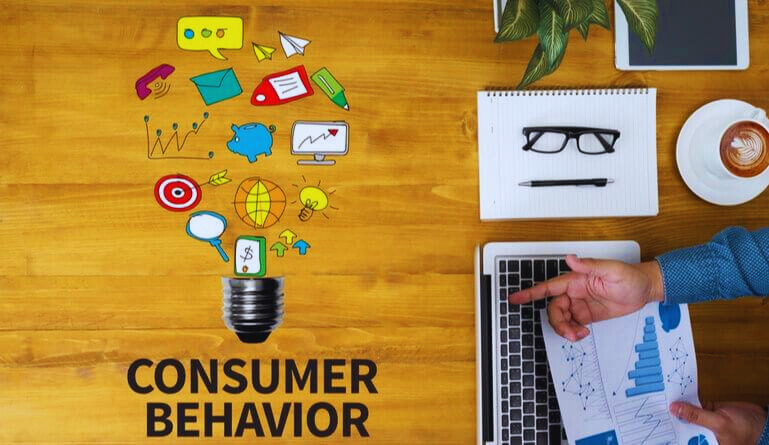In the realm of marketing and business strategy, understanding consumer behavior is paramount. It’s the cornerstone upon which successful marketing campaigns, product developments, and brand strategies are built. In this comprehensive analysis, we delve deep into the intricacies of consumer behavior, exploring its various facets and implications for businesses aiming to thrive in today’s competitive landscape.
What drives consumer behavior?
Consumer behavior is influenced by a myriad of factors, ranging from personal preferences and cultural norms to social influences and economic conditions. At its core, consumer behavior is driven by the innate human desire to fulfill needs and desires. Whether it’s purchasing a product, choosing a service provider, or engaging with a brand, consumers are constantly making decisions based on their perceived value and utility.
Psychological Factors
Psychological factors play a significant role in shaping consumer behavior. These include perception, motivation, attitudes, and beliefs. Understanding how individuals perceive products or services, what motivates their purchasing decisions, and the attitudes they hold toward brands can provide valuable insights for marketers.
Social Influences
Humans are social beings, and as such, social influences heavily impact consumer behavior. From family and friends to peer groups and online communities, individuals are influenced by the opinions, recommendations, and behaviors of those around them. Leveraging social proof, influencer marketing, and word-of-mouth strategies can be effective ways to tap into these social influences.
Cultural Norms
Cultural factors such as values, customs, and traditions also shape consumer behavior. What may be considered acceptable or desirable in one culture may not resonate with another. Marketers must navigate these cultural nuances carefully, ensuring their messaging and offerings align with the cultural values and preferences of their target audience.
The Consumer Decision-Making Process
Understanding how consumers make decisions is crucial for crafting effective marketing strategies. The consumer decision-making process typically involves several stages:
1. Problem Recognition
This is the stage where consumers become aware of a need or problem that needs to be addressed. Whether it’s a desire for a new smartphone or a solution to a household problem, identifying the need triggers the decision-making process.
2. Information Search
Once the need is recognized, consumers begin actively seeking information about potential solutions. This may involve researching products online, reading reviews, seeking recommendations from friends, or comparing prices and features.
3. Evaluation of Alternatives
After gathering information, consumers evaluate the available alternatives based on various criteria, such as price, quality, brand reputation, and personal preferences. This stage is crucial, as it determines which option will ultimately be chosen.
4. Purchase Decision
The purchase decision is where the consumer selects the product or service that best meets their needs and preferences. Factors such as price promotions, availability, and brand loyalty may influence the final decision.
5. Post-Purchase Evaluation
After making a purchase, consumers evaluate their decision based on their satisfaction with the product or service. Positive experiences may lead to repeat purchases and brand loyalty, while negative experiences could result in dissatisfaction and brand switching.
Implications for Marketing Strategy
Understanding the intricacies of consumer behavior has significant implications for marketing strategy development. By gaining insights into the factors that influence consumer decisions, businesses can tailor their marketing efforts to better meet the needs and preferences of their target audience.
Personalized Marketing
One-size-fits-all marketing approaches are no longer effective in today’s highly segmented market. Personalized marketing strategies that take into account individual preferences, behaviors, and demographics are key to engaging consumers and driving conversion.
Customer Experience Optimization
Creating positive customer experiences at every touchpoint is essential for building brand loyalty and advocacy. From the initial interaction with a brand to post-purchase support, every interaction shapes the overall customer experience.
Data-Driven Insights
Harnessing the power of data analytics allows businesses to gain valuable insights into consumer behavior patterns, trends, and preferences. By leveraging data-driven insights, marketers can make informed decisions and optimize their strategies for maximum impact.
Frequently Asked Questions (FAQs) about consumer behavior
1. What is consumer behavior?
Consumer behavior refers to the study of how individuals, groups, or organizations make decisions to allocate their resources (e.g., time, money, and effort) toward the consumption of goods, services, or ideas. It involves analyzing various factors that influence consumer decision-making, including psychological, social, and cultural influences.
2. Why is understanding consumer behavior important for businesses?
Understanding consumer behavior is crucial for businesses because it provides insights into the needs, preferences, and motivations of their target audience. By understanding why consumers make certain choices, businesses can tailor their marketing strategies, product offerings, and customer experiences to better meet consumer needs and preferences, ultimately driving customer satisfaction, loyalty, and business growth.
3. What are the key factors that influence consumer behavior?
Several factors influence consumer behavior, including:
- Psychological Factors: Such as perception, motivation, attitudes, and beliefs.
- Social Influences: include family, friends, peer groups, and cultural norms.
- Cultural Factors: include values, customs, traditions, and societal norms.
- Personal Factors: include demographics, lifestyle, personality, and past experiences.
These factors interact in complex ways to shape consumer decisions and behaviors.
Conclusion
In conclusion, understanding consumer behavior is fundamental for businesses striving to succeed in today’s competitive marketplace. By delving into the psychological, social, and cultural factors that influence consumer decisions, businesses can craft tailored marketing strategies that resonate with their target audience. From personalized marketing approaches to optimizing the customer experience, the insights gleaned from analyzing consumer behavior can drive business growth and success.


1 Comment
Thanks for sharing. I read many of your blog posts, cool, your blog is very good.